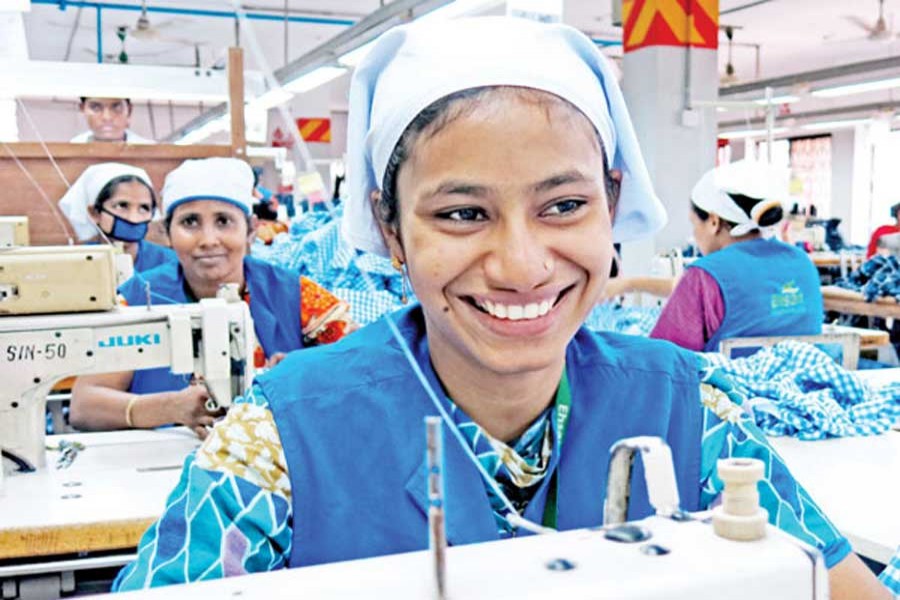
Published :
Updated :

Forum, a panel of candidates contesting the upcoming BGMEA election, has proposed the introduction of a 'forced savings' mechanism aimed at ensuring timely payment of wages to garment workers, particularly ahead of major festivals like Eid.
The proposal was unveiled on Sunday by Mahmud Hasan Khan, leader of the Forum panel, as part of its nine-point strategic plan ahead of the biennial election for the 2025-27 term, scheduled for May 31.
"If elected, we would develop a 'forced savings' system so that no issue with regard to non-payment of wages to workers would arise ahead of Eid," said Mr Khan said at a press conference.
Without elaborating further, he said they have already discussed the idea internally and decided to include it in the panel's election manifesto.
Two panels -- Forum and Sammilito Parishad -- are contesting the biennial election to the apparel sector's apex body, while Oikkyo Parishad is fielding six candidates for the 35 director posts of the BGMEA.
Responding to a question, Mr Khan said the RMG sector usually pays workers' wages within the first seven working days of the month.
However, less than 1.0 per cent of the total factories occasionally face challenges in ensuring timely payment of wages during the Eid festivals.
Some 7,000 factories are registered with BGMEA while around 2,000-2,500 factories are in operations and some 1,800 are actively engaged in export market, taking utilisation declaration (UD) from BGMEA, Mr Khan said.
He further said the failure to pay wages cannot be justified while factories in Bangladesh's largest sector may experience difficulties due to various reasons, including shipment delays, infrastructure challenges, supply chain disruptions or labour unrest.
About concerns over frequent "harassment" by customs authorities during factory audits, Mr Khan remarked, "It seems this has become a part of our lives."
To resolve the issue, he proposed outsourcing audit responsibilities to professional audit firms.
He also recommended introducing a digital clearance system for both imports and exports to streamline procedures and reduce bureaucratic hurdles.
About the possible impacts of US tariffs, he said that if the US considers the tariffs to be reciprocal, the rate of tariffs proposed for Bangladesh should be lower.
The Ministry of Commerce and the trade body are working to deal with the US tariff issue, he added.
On the issue of fair pricing, Mr. Khan noted that it largely depends on negotiation skills, strategic planning, and balanced industry expansion.
Negotiation skills develop when there remains a balance between demand and supply or buyers and makers, he said, stressing the need for avoiding unplanned expansions.
He further stressed the need for introducing a floor price for RMG products to ensure fair prices of locally made readymade garment, describing the move as 'difficult but possible'.
Regarding Bangladesh's graduation from the least developed country (LDC) status, he mentioned that the government is taking necessary steps to this end and the garment sector is ready to support such initiatives.
The Forum's nine-point proposals include establishing a separate ministry to solely look into the sector's issues and creation of a sustainable BGMEA by ensuring accountability of elected directors and arranging fund at low interest rate for small and medium-sized enterprises (SMEs).
If elected, they would also work to ensure labour rights, environmental protection, industrial safety and membership to real exporters, diversification of both market and products.
munni_fe@yahoo.com


 For all latest news, follow The Financial Express Google News channel.
For all latest news, follow The Financial Express Google News channel.